|
Interview conducted May 22 2013 Interview published June 02 2013 |
Metal Covenant was given the opportunity to talk to former Stratovarius main man Timo Tolkki about his new project Avalon. The first session was canceled, without any explanation, but when I eventually hooked up with him, it didn't take long to see that Timo is a man with many sides, not afraid to talk about inner emotions and his personal life.
![]()
Tobbe: So how are things doing in your camp?
-
Timo: Everything is fine. I'm quite busy and working on a couple of productions. Preparing for the next opera actually, looking for people.
Tobbe: Yes, the word says you're already in the works for the next record. You're a busy man.
-
Timo: It's looking for the right people that takes a long time. The actual recordings will be in something like November or December. You have to start looking for them very early.
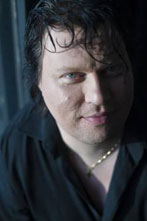 Tobbe:
Yes, I figure. Let's talk about your new album now, before we get further
into volume 2. You know, when I hear your name I usually refer to some
kind of symphonic power metal. I've heard the new album quite a few times,
but in your own words, what's different with this new Avalon album, compared
to your past works?
Tobbe:
Yes, I figure. Let's talk about your new album now, before we get further
into volume 2. You know, when I hear your name I usually refer to some
kind of symphonic power metal. I've heard the new album quite a few times,
but in your own words, what's different with this new Avalon album, compared
to your past works?
-
Timo: I don't define music in this way. I don't consider that's power metal or whatever metal. I mean, for example when I was still in Stratovarius, the songs I composed, people were calling them power metal and I thought "What is power metal?". I have ballads in there and I have some really sensitive moments and all kinds of things, very poppy stuff as well. So is power metal an accurate word to describe what my music is? I don't think there is a description to it, it's just music you know. It's heavy rock influenced, melodic music, I would say.
Tobbe: You know people always want to label things and put a name to it.
-
Timo: It's fine with me. I just do the music and I let you guys do the labelling.
Tobbe: Why this plethora of singers? Why so many? Wasn't one male and one female vocalist good enough?
-
Timo: When you are doing something that is formatized as a metal opera, you have to have a cast of singers. I am operating within the boundaries of a format here. It is a clear format and I am not denying that. I had an executive producer in this as well, for the first time in my career, so I had to okay everything with another person. It was an experience and I've learned a lot in these 25 years in this business. You can also learn, in a good way, from a person that is in a way judging your music. You can take good things from that. 15 years ago, if somebody would have come to me and said that he's my executive producer, I would probably just had said "Fuck you!".
Tobbe: Yes, you're pretty used to doing things the way you want to.
-
Timo: The whole thing was pretty simple actually. I got a phone call from Frontiers and they instantly proposed this trilogy to me. The Land Of New Hope is the last part of this trilogy, released first.
Tobbe: Kind of odd.
-
Timo: Yes, it's like Star Wars. Start from the middle, but I started in the end. Actually I wrote the whole story for three albums and I chomped it up to three pieces and then I figured out that I should start at the ending. I wrote about 16 or 17 songs to the story and certain singers started to come to my mind and I got all of them.
Tobbe: You got all singers you asked?
-
Timo: Exactly. Everybody I asked. No one turned my offer down. You know, singers want, like all musicians, publicity and they want their name around and there's also a financial aspect. So I got everybody I wanted and I was happy about that, because the singers are really the key to this album.
Tobbe: Yes, with the opera stuff, even if there's not much actual opera on the album.
-
Timo: There's no opera on it.
Tobbe: Well, what about the chorus on the opening track?
-
Timo: Yes, Avalanche Anthem in the chorus. Probably because I really don't like that hysterical opera vocals, female opera vocals. I wanted it to have basically good songs with good memorable melodies and hooks and catchy things in there, and good vocalists. That was my idea.
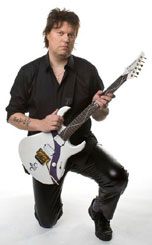 Tobbe:
Yes, you have some really strong vocalists on that album. That's awesome
you could get them all.
Tobbe:
Yes, you have some really strong vocalists on that album. That's awesome
you could get them all.
-
Timo: Yes, I was surprised about that. You know, I really just asked them. I got in touch with them and I asked them "Would you be interesting in this?", and then there was just a matter of logistics.
Tobbe: So all these vocalists and all musicians. On what locations did you all guys record this album?
-
Timo: Of course, most vocalists in this metal opera, did their own vocals, although I, as a producer, would very much prefer to be there. The main vocalist on this album is Elize Ryd and I actually was spending a week in Örebro, Sweden, recording her vocals. That was something I definitely wanted to do as a producer. She was kind of feeling a bit weird about the songs, because they are so different to Amaranthe's. There's so much more space in here, for her voice. Many times she told me that this sounded strange to her. I told her that it's only because there are so much space for her voice and she's not used to hear her voice like this. She's a fabulous singer.
Tobbe: You told me you had an executive producer. What about that?
-
Timo: Well, I was doing one hundred percent. I had to do it. These days I write a lot of songs anyway. For other artists as well. All kinds of music, pop music, other stuff. Songwriting business is like this. You have somebody that pretty much tells you how it should be. I was always like that, that I really knew what I was doing. I know very much what I'm doing in every area of recording, because I've been doing this producing and engineering for over 20 years, so I'm really aware of all the technical aspects.
It's the same way with cinema. There is director's cut and there is a producer who says that we don't need a certain part, because it makes it too complicated. So that's really the executive producer's job. He taught me a little bit about how to think a bit more commercial. In these times when the record industry is going down, it's something you sometimes have to do, but I cannot say that when I was composing the songs, I was thinking about something like that. I kept on writing songs until he was happy. He was never saying like "The verse is not good, but we'll keep the chorus". It was always "I don't like this song" or "I like this song". That's how it went.
Tobbe: You know, when I listen to the album I find two outstanding tracks, the title track is awesome, and also Shine with Elize singing. Do you have any special moments or favorites songs yourself or are all equally as good, you think?
-
Timo: I like I'll Sing You Home the best and that's maybe because what happened in the studio, which people don't know about. When we were recording the vocals it got really emotional. I spent a lot of time in the studio getting emotions out of Elize and in this particular song you can actually hear her crying in the end. If you listen really careful, you can hear her sobbing after the last word.
Tobbe: I've listened to that song quite a few times and I didn't pick that up. I've gotta listen to that song when we're done talking.
-
Timo: It's very faint, but it's there. I always spend a lot of time with emotions with singers. The guitar solo in that song is also one of my best ever. It's not technical, but it's emotional. I was surprised myself too, like "Is that me?".
Tobbe: Good to have those moments so deep into your career.
-
Timo: That's true, and that's when I actually knew that there was something special on this album, when I could still hear something like that.
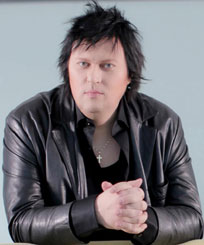 Tobbe:
Yes, that's a good feeling, huh?
Tobbe:
Yes, that's a good feeling, huh?
-
Timo: It's a very good feeling. It's my 20th studio album.
Tobbe: What about promotion for the albums with live shows or tours? Obviously it will be impossible to gather all artists for a tour, but will there be any touring, live shows or festival appearances at all?
-
Timo: In this moment I am kind of concentrating on how this whole thing is going. The whole music industry is in a big change and the touring circuit also. Everybody wants to tour, but there is not enough audience for everybody. I'm not interested in playing toilets. I did it before, like in '86 and '87, enough.
Tobbe: But then you were young and you were going into business in a good mood and you wanted to become someone.
-
Timo: You have to do that, but it's different when you become more successful and I did the whole thing in the 90's and the early 2000's. You know, I played to 60000 people. In this moment I'm very comfortable with not touring, so I'm kind of looking at things. Frontiers was approaching me about releasing a live DVD after all three operas are complete.
Tobbe: So when is part 3 up for grabs?
-
Timo: Part 1 is actually part 3.
Tobbe: Okay. The third record?
-
Timo: They want to release these albums like every year, so next year at the same time with the next chapter and the last chapter in 2015.
Tobbe: We'll see what happens. You never know in this business.
-
Timo: It's a very strong label and it's actually pretty much the only label that's going up in the music business, which is very weird.
Tobbe: I've heard mostly good things about Frontiers and you seem very confident with them too.
-
Timo: We have a good relationship. So the thing with these parts of the opera is that I want to have different casts on each record. That of course makes it much more difficult, so I have to decide which part to do next. Part 1 or part 2. I have to know already now, because I'm looking for people and the story dictates the music and the music dictates the singers. I have people in mind already. I have contacted about 10 people and I am sort of fishing at the moment.
Tobbe: I guess you don't wanna mention any names yet?
-
Timo: No, I can't. I haven't gotten any final answers yet and everyone is just touching base. Also for marketing, it wouldn't be that wise.
Tobbe: I totally understand. I wouldn't tell either. Like you said, touring isn't your top priority and you've been in the business for a long time at this point, but you write music for other artists as well, so there's no time to rest?
-
Timo: Yes, I really love music. I would probably tour if the conditions were right. For example, I would really love to do one record and a world tour with the Stratovarius guys. It's something I think the fans would appreciate. I don't need it, but I think it would be a cool thing to do.
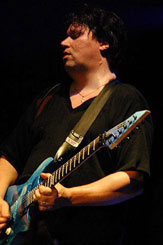 Tobbe:
I would definitely catch a set. Since your time in Stratovarius you've
been running a lot of projects like a solo record, Avalon and Revolution
Renaissance. Do you think, in a near future or when you're done with Avalon's
3 records, you will try to form a solid band again? You know, like 5 members
keeping intact? You have been in and out of bands in recent years, although
they were your bands.
Tobbe:
I would definitely catch a set. Since your time in Stratovarius you've
been running a lot of projects like a solo record, Avalon and Revolution
Renaissance. Do you think, in a near future or when you're done with Avalon's
3 records, you will try to form a solid band again? You know, like 5 members
keeping intact? You have been in and out of bands in recent years, although
they were your bands.
-
Timo: When I left Stratovarius, I didn't anticipate how difficult it is to start a new band. So coming up with Revolution Renaissance, I very quickly noticed that it's very, very difficult to get exposure and even gigs. Revolution Renaissance and the other band I had, Symfonia, weren't meant to be projects, but really solid bands. In both cases, the results, like sales figures and nobody basically showed up at the few gigs we did. You know, I'm a professional musician and I play to people and if there are no people, that means that there's something wrong. I'm not in the age anymore, where I'm interested in building up a band for 10 years. I'd rather call it off, you know. After these 3 operas, I'll be 50 years old and then I will have to see where I am at that point and if I am becoming a full-time songwriter. Probably I would like to do the Stratovarius thing, if it happens, and then I would like to do a solo record.
Tobbe: Like you said, you will always have your songwriting to fall back on if things don't work out the way you want to, but what do you do besides creating and playing music? There must some other activities you care for or is it music full-time?
-
Timo: Now being 47, I'm of course beyond my wild years. My life is very simple, because I simplified it. It was about 3 years ago that I decided that there were so many people in my life that were no good to me, so I terminated a lot of relationships. I have come to a point where I only know a few people. My life is very simple. It's really being at home and I have my own studio 7 kilometers from my home. My hobby is photography and I spend a lot of time in the nature. I actually live by a big forest by the sea. It's a great place and almost every day I walk there and I get a lot of power from there. The daily life is revolved around music, writing songs or working with projects. At this moment, I'm working on 4 projects on Frontiers, I think. One is Allen/Lande and I've just finished the songwriting for that and we're going into production next month. Jörn Lande is a great singer and it's really great to write songs for a singer like that. I really like to work with good singers, you know. I mean, I always had good singers.
Tobbe: You've had a pretty successful career in heavier music and have you come as far as you hoped for when you were young or do you believe you can grow even more and reach out to bigger masses again, like those you had with Stratovarius?
-
Timo: In metal, no, I think. When I started playing when I was like 14 and rehearsing 8 hours a day, I never had any dreams or never wanted to achieve something. I was just playing for the love of it. The same thing has maintained throughout my career. When we were on top with Stratovarius, I never had thoughts of that. It was only about creating, composing, touring and expressing. If I really want to reach the masses, I need to go into songwriting and then you have to find your own style and your particular corner in the music field. In five years maybe there are no record companies anymore. The music industry is very young, so what we are facing now is probably just something that makes it healthier.
Tobbe: I really can't say I agree.
-
Timo: If you think from the record companies' perspective, it's definitely not healthier. I'm thinking of it as a whole. I am connecting everything to this. I'm connecting the media, the press, the record stores, the pressing plants, graphics. Everything is connected. If the cake is not equally divided, there's gonna be some kind of a revolution and now we are in the middle of that. I guess we will know in around 5 years where we end up. But one thing is for sure, if you can write good songs, you can always make a living out of music, no matter what is happening.
 Tobbe:
You said you write both pop and metal songs. Is it rather easy for you
to switch from pop to metal or do you have to focus real hard?
Tobbe:
You said you write both pop and metal songs. Is it rather easy for you
to switch from pop to metal or do you have to focus real hard?
- Timo: It seems like I have some kind of a weird
talent for that. I'm in this moment composing an album for a female
singer, which sounds something like Within Temptation and at the same
time I'm composing another album for another female singer, which is
more like pop. If you start thinking about it, then you're off. You
just have to do it and not think about it too much. It's easy for me
to write songs, you know. It's a gift in many ways.
I am a huge fan of Max Martin. Basically, he's one a my biggest idols, when it comes to producing and songwriting. He found his own style and you can definitely always tell that's it's him and this guy has a metal background. We in Scandinavia have something that enables us to write melodies that, for example, Americans cannot. That's why Britney Spears, Céline Dion, Pink and all these people are running marathons to Stockholm. He found his thing and he's doing it for the love of music, not for the business. Of course the money comes, but it's not the other way around.
Tobbe: Do you ever reflect on your own past and take pride in what you've done? Like, I have achieved pretty much in my career?
-
Timo: I am a guy with a very low self confidence. When I look back at my career and my life, I'm thinking about how fast everything has gone by. It feels like 1995 was yesterday and I feel like I have been in a time warp or something. I have done like 400 songs in my life and still, in some way, it doesn't mean so much to me. For example, I don't own any records. I try to live in the moment and I try to concentrate on the future and what's past is past. Other people, like fans, other musicians and journalists, are talking about the past. For me, recollections of some recording sessions and tours are something I do remember, but I really don't take notice of them. I can't say that I'm proud and that word is alien to me. I'm just doing things, you know. I'm writing music and it comes and flows very natural.
Tobbe: I would have taken some pride. You've had a rather successful career in the metal business.
-
Timo: Sometimes I wish I could say "Man, I really did some cool stuff", and of course, on an intellectual level I understand this. Although deep inside the core, it is not there.
Tobbe: When talking about your past. Are there any songs through your career you care a little more for? Are there also songs you wish you never released?
-
Timo: Well, of course the first Stratovarius album. When I listen to it, I'm just "Oh my God, this is awful". We did it in 4 days, but still Black Sabbath and The Beatles did their albums in 2. Oh man, it's so bad. I'll buy every copy and destroy them.
There are some songs that I am proud of, or maybe albums. If I'm proud of any album particularly, it's Stratovarius' Elements Pt. 1, because I really put so much energy and time into that production. I wrote the lyrics in 4 weeks and I really thought about them a lot. That album was, for me, the peak of that band and after that there was not so much to do anymore. And also pretty much the songs that move me and bring me emotions. You know that moment when you are in a big cinema, watching a film, and everybody feels like crying, but nobody does. That's the moment I am looking for in music and in some of my songs, like Season Of Change and Coming Home, it's there. But there's so many songs, like 400 and I don't even remember all the songs I wrote.
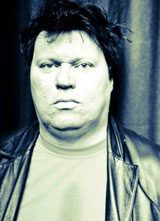 Tobbe:
Yes, there are too many. Going back to Elements Pt.1, I totally love Soul
Of A Vagabond, one of your best songs ever.
Tobbe:
Yes, there are too many. Going back to Elements Pt.1, I totally love Soul
Of A Vagabond, one of your best songs ever.
-
Timo: This song is basically about myself, but I guess it's not valid anymore, because I actually settled down. Should be called Soul Of A Settledown. I have really settled down and I'm looking at life and music from a different perspective. I'm more calm about things and I take things as they come. I still love music and I consider I am here on this planet to create music, you know.
Tobbe: What if, let's say in 10 years, you can't make a living out of your music anymore?
-
Timo: This is another aspect that every musician must face at some point. I have actually already faced it, after Symfonia. I spent like almost a year in depression, where I fell into an empty space where I had nothing. I'd been earning a living through music for about 20 years and suddenly I had nothing. It's been 3 years from that point and today I am thinking about this thing in a way that I believe that whatever the future brings, I trust in the future. I think I am on the right path. For example, this metal opera came right out of the blue. I did not expect this, so when the phone call came, I was completely stunned. I couldn't believe it. It has been such a positive experience and all these other productions and these new ideas have brought freshness and a positive flow, which gives me a belief that things will be okay. I know that somehow, somewhere there is a place for me in music, always. I try my best to explain how I feel about this. For other people this is an interlectual thing, but I know this.
Tobbe: There aren't so many musicians in this world that's making a good living out of music. It's only a small part of the population.
-
Timo: It takes a lot of dedication. You basically have to dedicate your life to music. It somehow needs that, because whatever you do becomes your life. I believe that some people have a talent for music. For example, I believe that you cannot teach music. It comes from somewhere, I don't know where. I'm convinced I have this gift and I have to use it. At some point you realize that you have this gift and then it's all about expressing yourself.
I built this new studio with my friend in December and I mixed this album there. It's the first album mixed there. Now I have a perfect working environment for anything I wanna create. It's beautiful and I can go there whenever I want to, day or night.
Tobbe: So now you're either in the studio or out in the nature?
-
Timo: Yes, or at home. I quit drinking 8 years ago, so I don't go to clubs anymore and I don't check out new bands. It's a very simple life. It's music really, or at home and nature.
Tobbe: Sometimes it's good for musicians and songwriters to not check out other bands, because they get influences whether they want it or not.
-
Timo: Being influenced by things is something I believe we are all connected to, in some way into a collective consciousness where the melodies are. People have a tendency to compare songs and bands and things. A lot of people is saying that my opera is an Avantasia copy, because it happens to start with the same 3 letters, although they haven't heard the music or read the story. There are actually 17 other bands named Avalon, so I am smart enough to not get into that debate. It's not worth the energy.
Tobbe: People should listen to the record before being judgmental.
-
Timo: But I understand it, because I've been there myself, you know. Like in '94 or '95 I was a real hardcore metalhead. I was like "Everything else is shit". Nothing else was good out there, rap sucked and it was only metal. Now I can listen to anything from Slayer to Shania Twain. I can understand that some people might have a problem with this, but for me music is not religion. It is a form of expression and it's an artform, and therefore it should be treated with respect and dignity. I really don't think that many people are doing that, with internet and things, what people write in there. It's unbelievable actually.
Tobbe: Yes, it's safe to sit at home, you know. Writing shit behind a screen.
-
Timo: It's very safe indeed. I stopped and I took a look at my life and I made it to what I wanted it to be. I made it very simple. I am able to live a more healthy life than being a very hectic person, doing a lot of stuff all the time. I believe that then your life just passes by in a flash second and you're gone, if you don't stop.
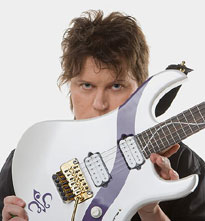 Tobbe:
You know what, Timo. That was pretty much it. I wanna thank you very much
for these pleasant 45 minutes. I got to know a little about the new record,
which was my main goal. That's what I mostly wanna talk about, because
that's what's most important right now.
Tobbe:
You know what, Timo. That was pretty much it. I wanna thank you very much
for these pleasant 45 minutes. I got to know a little about the new record,
which was my main goal. That's what I mostly wanna talk about, because
that's what's most important right now.
-
Timo: With me it goes to different territories, because I've done so many interviews in my life. I've heard the questions before, so I tend to take the interview into other places. Some journalists don't like this and some do.
Tobbe: I think the new album is most important, but also the bigger picture as well. It's all contributing to the interview and it also gets more interesting for the readers too.
-
Timo: Exactly, for me a good interview is also a form of art. When you write, it's your property and your expressions. I cannot write an article, it's a different thing. Everything is pretty much art when you start thinking about it. A creation, what you create. When you write, you shouldn't think, because then your fingers stop. That means that whatever comes to the screen is coming from somewhere else than from your mind. It's subconscious.
Tobbe: Possible…
-
Timo: It has to, because otherwise you will be able to think when you write.
Tobbe: Well, if I start to think too much of what to write, I may get stuck.
- Timo: It's the same in music. When you play, the moment you introduce thought, you are lost. You cannot express if you think.
Tobbe: Sounds weird, but also true.
-
Timo: You can think about it, but you can't. Thoughts make it impossible to express. That's also what the ancient philosophers taught. You have to get rid of the mind to be able to express yourself.
Tobbe: Like I said, thank you for the interview and it was great talking to you. I hope we can talk again later.
-
Timo: Yes, with the next opera.
Tobbe: Maybe shorter than 45 minutes then?
-
Timo: Unfortunately with me it's usually one hour or more. They are not too happy about it at the record company. Anyway, it was a really cool interview. Thank you and I hope to see you or hear from you very soon. Take care.
Tobbe: Thanks buddy.
![]() See
also: review
of the album The Land Of New Hope (A Metal Opera)
See
also: review
of the album The Land Of New Hope (A Metal Opera)
Related links:
www.tolkki.org
www.facebook.com/timotolkkiofficial